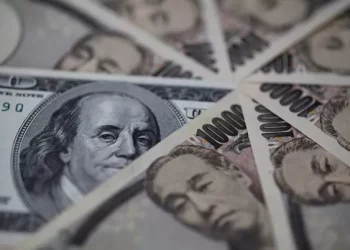Leverage means that investors take their own funds as a guarantee, and then enlarge the funds obtained from banks or brokers, that is, enlarge the trading funds of investors.
The ratio is generally determined by the bank or brokerage, and the larger the ratio, the less the client will have to pay.
The function of exchange rate lever is realized by exchange rate floating.
1. The function of exchange rate leverage is realized through exchange rate floating.
The exchange rate, as the comparative relationship between the values possessed or represented by the two countries, will change due to the change of the currency of either party, and will also change with the change of the domestic demand.
For example, if a country’s balance of payments is in surplus, there will be an oversupply and a decline; if there is a deficit, the foreign exchange rate will rise.
If there is inflation in a country and prices rise, it will weaken the ability of exported goods to compete in the international market, thus reducing exports.
At the same time, the strong domestic purchase demand will lead to an increase in imports, so there will be a shortage of foreign exchange, in this case, the foreign exchange rate will rise.
It can be seen that the main factors affecting the leverage of a country’s exchange rate are its balance of payments and the degree of inflation.
The adjustment effect of exchange rate leverage on the balance of payments is similar to that of relative price changes.
However, since the exchange rate lever is related to all the items in it, its impact is not limited to international trade, but all the balance of payments, including the current account and the capital account.
2. The adjustment effect of exchange rate leverage is closely related to the exchange rate system implemented.
Historically, there are two main international exchange rate systems, namely, the system and floating exchange rate system.
Under the fixed exchange rate system, because the exchange rate rarely changes, the adjustment effect on the balance of payments is very small.
Under the floating exchange rate system, because the exchange rate is constantly changing, the adjustment effect on the balance of payments is very great.
Of course, since floating exchange rates are managed (controlled) floats, the scope of exchange rate fluctuations is limited.
Therefore, its regulating effect is also subject to certain limitations.
3. The adjustment effect of exchange rate leverage is also related to the status and role of national currency (domestic currency) in the world.
Generally speaking, the exchange rate changes of currencies that play a larger role in international payment, settlement and international financial markets have a greater impact on the balance of payments and involve both sides of the transaction;
On the other hand, the exchange rate changes of currencies that play a smaller role in international payment and settlement have a smaller effect on the balance of payments, and usually only play a role in the country issuing the currency.
Most of them are around 50 to 200 times, not more than 400.
























